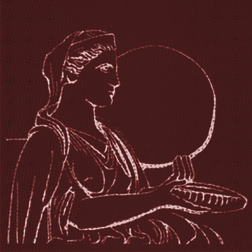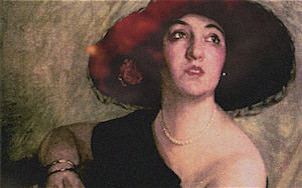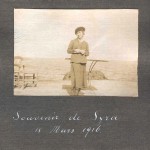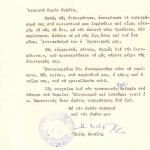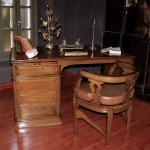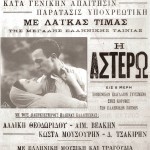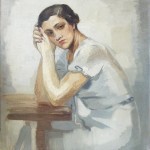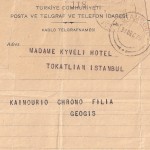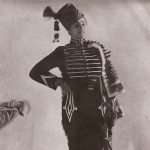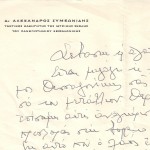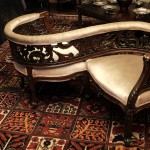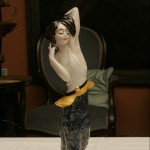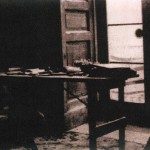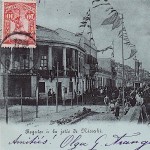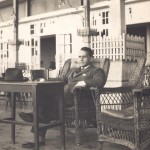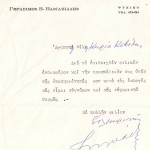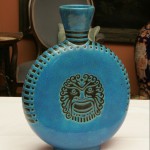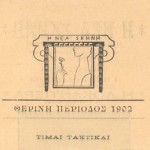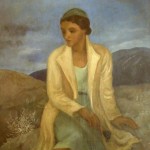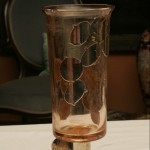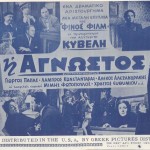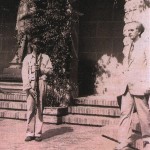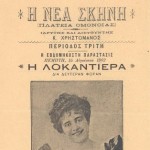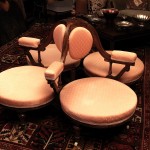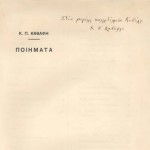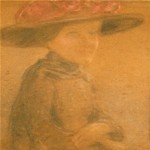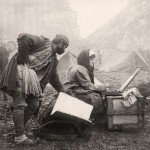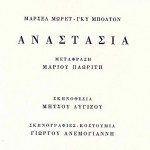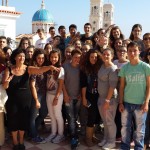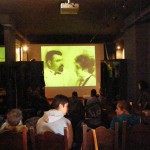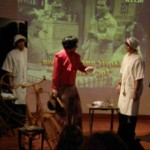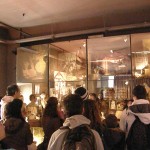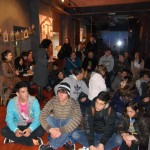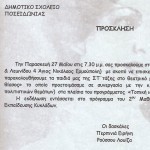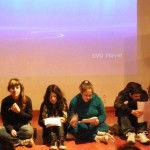Α. Research
The Institute’s Archives and Collections have been put together by the family effects that remained in Kyveli’s family after the many donations made to the “Theatre Museum”, “Τhe National Gallery” in Athens and the “Apollon” theatre in Syros. They include Kyveli’s Correspondence with Georgios Papandreou, Theatre Bills, a Photo Gallery, Audiovisual Material, costumes, the family books, personal effects and works of art. The Institute has as its prime objective the enrichment of the archives and collections with material that will shed further light on the history of a great theatre family, and Greek theatre in general. We would like to invite anybody who is in possession of material related to the extended family of Kyveli-Myrat-Kotopouli, to contact us and help us to ensure its widest dissemination possible.
Correspondence
A significant part of the Institute’s Archives consists of the personal correspondence between Kyveli and Georgios Papandreou although many letters to and from Kyveli’s family and friends are also available. The entire body of correspondence rises to 340 hand-written letters and covers the period between 1920 and 1947. Despite the personal nature of the letters, one finds therein, important information about the historical, artistic, political and social phenomena that marked the time between the interwar period and 1947, both in Greece and abroad. An initial classification has already been made possible through the kind support of the “Friends of Music Society/Kyveli-Giannis Horn Scholarships” and the scientific input of theatrologist Alexia Altouva and historian Giannis Papadopoulos under the supervision of Platon Mavromoustakos who is associate professor of “Theatre Studies at the University of Athens”.
Theatre Bills
The Institute possesses a catalogue of rare theatre bills, some of which are unique to this collection.
Photo Gallery
The photo archive has 2.000 photographs. Many are unique and in good condition and provide glimpses into many interesting aspects of cultural and political life in 20th century Greece. The Institute works closely with the “Photography Circle” and its Syros branch, for the organisation, enrichment and exploitation of the photo gallery.
Audiovisual Material
The archive of the “Kyveli Institute” contains recordings and film reels starring many members of Kyveli’s family.
The Permanent Collection
It consists of the family Artefacts, Wardrobe and Paintings.
B. Education
Theatrical Education-Educational Programmes
As part of the basic objective of cultivating theatrical consciousness and educating a large audience, the Institute completed four documentary films, aiming to provide a journey through the history of theatre from the 19th to the 21st century.
1. Kyveli-Dimitrios Vikelas, A meeting … Hermoupolis 1820-1920 (2007) directed by Memi Spyratou
2. Kyveli meets Kostis Bastias: Hermoupolis 1918-Athens 1938 (2008), directed by Giorgos Filis
3. From Argentina to Syros: Trading leather (2009), directed by Giannis Zygomalas
4. Theatrical calendars-Miranda Myrat (2009), directed by Stelios Kammitsis
The Institute, in cooperation with the General Directorate of cultural programmes in “Primary Education of the Cyclades” formed a dynamic action plan consisting of a programme of visits to schools of Syros and a series of lectures about Greek theatre with a tour of the Institute’s facilities carried out by a theatrologist from the school of “Second Chance” on Syros.
The Institute hosted the “Summer Academy of the National Theatre” and the students’ work was presented at our facilities.
The programme “Making theatre-The occupations behind theatre” has already been completed in cooperation with the “Foundation of the Hellenic World”.
In recognition of the Institute’s contribution to the field of theatre education the Ministry of Education approved the proposal by the committee of the “4th Primary School of Alimos” for it to be named “Kyveli School”.
The Institute’s education policy is geared towards cooperation with other institutions abroad. Target groups include education establishments, academies, societies, organisations, youth initiatives as well as the general public in an attempt to create specialised educative programmes and material to support them.
